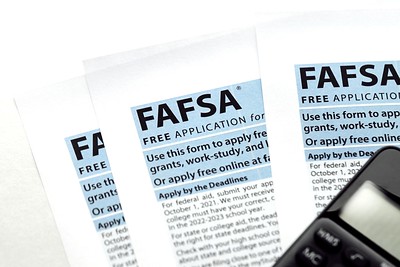If you fill out the Free Application for Federal Student Aid (FAFSA) regularly, you already know that there’s something different about this year’s application process. Filling out the FAFSA is an unholy cross between taking a standardized test and doing your taxes.
This year, the Biden administration has vowed that things will be different, and so far, they’re right. The Department of Education announced that the FAFSA, which typically opens on October 1 of any given year, would be ready to go by December 31. The deadline to complete the application is a little murky; it depends on the state the applicant lives in and the school(s) the applicant may want to attend.
Normally, the Michigan deadline is May 1, but for students who plan to attend school in the 2023-24 (current) year, the deadline is June 30, 2024. If you plan to attend in the 2024-25 school year, the deadline is June 30, 2025.
The delayed roll-out for the new and improved FAFSA form doesn’t necessarily change any institutional deadlines. Institutions have their own deadlines for aid applications so they can manage the distribution of internal scholarships.
The delayed rollout of the form provides an opportunity for places like Washtenaw Community College to assist local families in completing the FAFSA. You wouldn’t think that completing a form is a big deal, but just 55% of eligible high school students in Michigan complete the form. Not completing the form not only closes the student out of federal financial aid, but also eliminates state grant aid and institutional aid. It virtually assures that the student will either not have enough funding to complete their post-secondary education, or that they will need to rely on expensive private student loans to remain enrolled.
One reason the completion rate of the FAFSA is so low is that many parents fear that supplying their tax returns will obligate them to pay the “Expected Family Contribution” for their student. This isn’t true, but many parents refuse to provide their tax returns. This prevents the student from completing the application for financial aid and ensures that the student cannot qualify for most scholarships.
Hosting financial aid workshops for high school seniors and their families (or current/prospective adult students) is one way to get families on campus. It also provides a service to families who are not familiar with the financial aid process. Financial aid workshops would also provide a forum for parents and guardians to ask questions about the financial aid application process and dispel myths. It may also offer an opportunity to engage with parents who still have time to plan financially for younger students who may want to attend college in the future. Finally, workshops can also offer the opportunity for parents who qualify for Michigan Reconnect to learn more about the program and perhaps enroll themselves.
This year, more than in years past, it is important to get families engaged in the federal financial aid process. The new FAFSA provides an opportunity to get parents and students plugged into the financial aid process, regardless of which institution the student may attend. The State of Michigan has a goal of a 75% completion rate for the FAFSA. The completion rate increased by a scant 2.5% between 2022-23 and 2023-24. At that rate, the state might reach its completion goal in 2031 or 2032.
Community colleges have a role to play in boosting awareness of the FAFSA and completion rates.
Photo Credit: Focal Foto , via Flickr


















